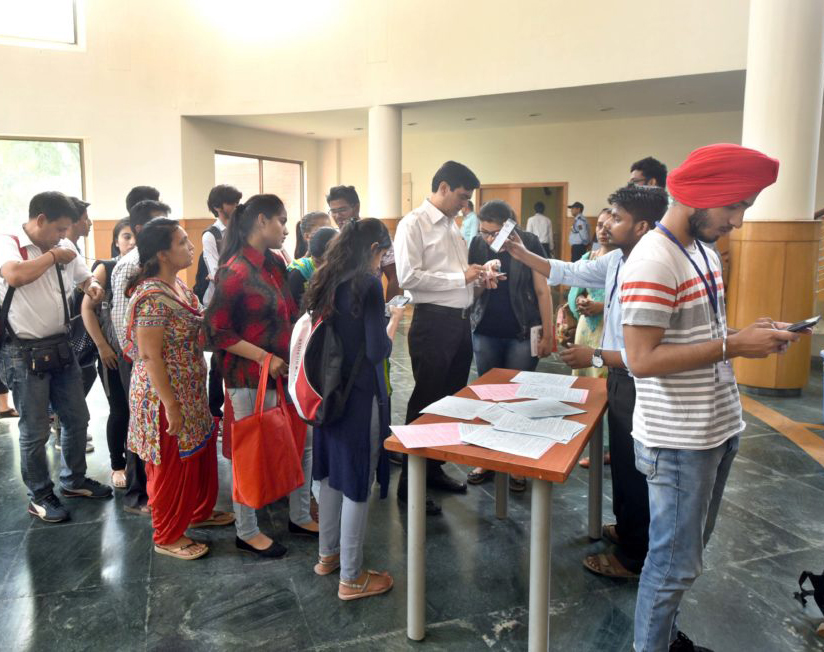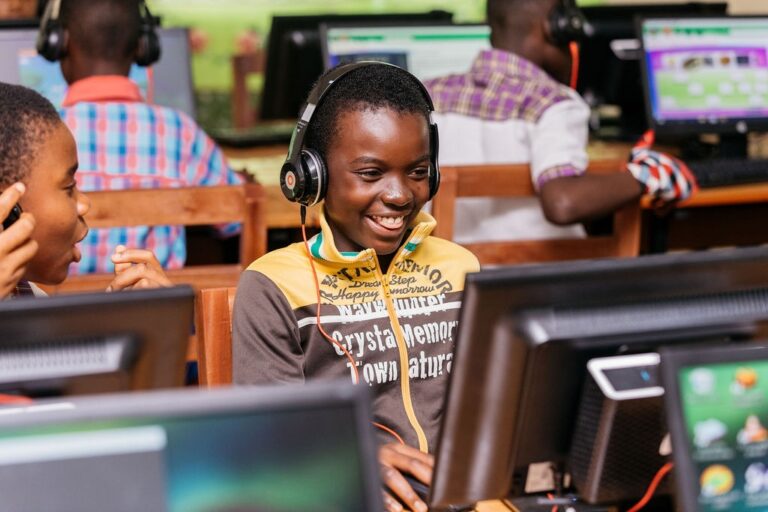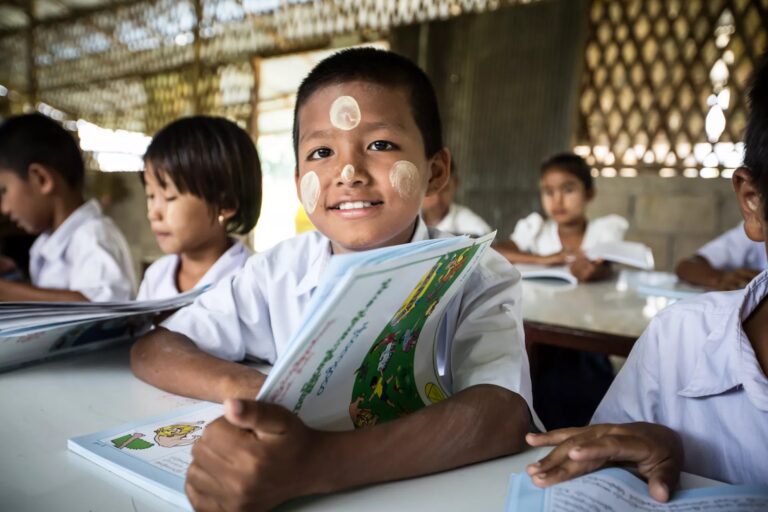By: Paul Solman for PBS, Making Sen$e May 31, 2018 5:08 PM EDT
Editor’s note: PBS NewsHour economics correspondent Paul Solman recently spoke with the economist Surjit Bhalla and his wife, Ravinder Kaur, a professor of sociology at the Indian Institute of Technology in Delhi. The broad-ranging interview touched on education, gender inequality, and Bhalla’s 2017 book, “The New Wealth of Nations.” Their conversation is presented here, edited for length and clarity. Watch the full segment on Thursday’s NewsHour program.
PAUL SOLMAN: What’s the key thesis of the book [“The New Wealth of Nations”]?
SURJIT BHALLA: Well, there’s not just one thesis, but the key thesis of the book is that education and the spread of education has transformed the world and has transformed relationships, inequalities between countries, and finally and most importantly between the sexes. So it’s education that has changed everything in the world that we see around us.
PAUL SOLMAN: And what’s going to happen?
SURJIT BHALLA: More and more equality between individuals. Right now, why is there inequality? Because somebody is more educated and therefore can earn more. And somebody is less educated and therefore can earn less. Of course abilities are different so therefore that component does not change. But as [more people] gets more and more educated, there is greater equality. Now let’s move this to women and men. Traditionally, men and women have had unequal access to education. This is rapidly changing, such that for example just this year, in a thousand-year history of Oxford University, for the first time there are more female undergraduates than men.
PAUL SOLMAN: So now you’ve studied gender roles, you teach that at the Indian Institute of Technology, you are married to the guy, so maybe you are reluctant to disagree with him. But to what extent do you agree? Does your work support it?
RAVINDER KAUR: To some extent it does. I think the change that is happening today is very rapid. But I would still say that there is a way to go before we close the gender gap. Different countries are at different points in this and India, you might always hear, lives in several centuries. So if you were to come to New Delhi you will see that many more women are educated and can give the men a run for their money. But if you were to go to Rajasthan or if you were to go to Behar you would find that the women are still wailed and child marriage is quite rampant. But I think where I would agree with the thesis is that education is extremely transformative. And the more you make available opportunities for education to everybody, it’s going to be a win-win generally.
PAUL SOLMAN: And the cost, what’s the cost?
SURJIT BHALLA: Zero. That’s the cost.
PAUL SOLMAN: No losers?
SURJIT BHALLA: Let’s take it to a logical extreme that people in the West are going to lose out relative to the people in the east, the east meaning the rest of the world, the West meaning the advanced countries. Here you’ve achieved, almost certainly achieved universal education, and 60 percent or 50, 60, 70 percent of the people graduate from high school. What happens when the world is filled with everybody graduating from high school? Let’s just take that as an example. Then the Western people, both men and women, will lose their advantage over the rest of the world.
PAUL SOLMAN: Is that what’s causing a lot of the resentment in the West you think?
RAVINDER KAUR: I would say yes. You know, one of the reasons is that incomes have not grown in the West. Inequality did grow. And I think partially that happened because people who were technologically sophisticated and could operate in the world, the gains they made were much more than gains from traditional education or a high school degree or undergraduate degree. And now that is changing very rapidly in the rest of the world also. People are catching up and jobs are moving you know all across the globe.
SURJIT BHALLA: I was going to add that even college graduates in the U.S., for the last 20 years the real wage of a college graduate in the U.S. has grown at something like 0.5 percent per annum, which is really nothing. So we know that the high school graduates in the U.S. have seen their real wage decline by something like 10 percent or 15 percent over the last 25 years. The real wage of those who went to college but did not graduate has stayed the same. And the real wage of college graduates, the crème de la crème, has risen by 0.5 percent.
PAUL SOLMAN: Isn’t that why there’s a reaction against immigration?
RAVINDER KAUR: There’s a big reaction. You know there’s always a scapegoat when things are not going well for you. And it always tends to be somebody we think of as the other. You know it could be a person of a different color. It could be a person of different religious persuasion.
SURJIT BHALLA: [Or] of a different sex.
RAVINDER KAUR: Of different sex, or whatever. So maybe men are resentful of women.
PAUL SOLMAN: Are they?
RAVINDER KAUR: Yes, because they see women sort of taking over.
SURJIT BHALLA: Not sort of. Taking over, period… Previously, 20 years ago, there were always the bottom 20 percent who lost out, but they could come home and feel superior to or dominate their wives. Because they would be less educated than them or whatever it is. Now they come home and the women are the major breadwinners, or are more educated than them, or more able than them…
Now they’re equals. That can mess up the psychology of men. It doesn’t mess up the psychology of women, because they’ve been discriminated again, they’ve done the double shift, etcetera. So they’re on a complete upward trajectory, they’re able to face the consequences, and these guys are not able to face it.
PAUL SOLMAN: But it’s not all easy for women, either. I mean, women as they enter the workforce and are in a more and more competitive world as you say, there are more stresses, right, more pressures?
RAVINDER KAUR: Absolutely. The sorts of pressures that men as breadwinners have had, I think are there for women also now, and we are seeing that. [For example], the number of women dying of heart attacks, it used to be a man’s disease, but now I think the numbers are changing on that. So things are changing…
If the men accept that world, you know where things are changing, they will be more equal, and if they decide that it will be a plus-plus rather than a minus for the men and a plus for the women, everyone will be happier, [even though] as you said some of the burden will get shifted onto women of being the breadwinners. So I think we [can] look forward to a more gender neutral world.
PAUL SOLMAN: So the new wealth of nations is, there’ll be more and more education. Much more education for women. And certainly with respect to educating women, that male privilege has decreased, and that’s gonna make the world better off?
SURJIT BHALLA: Male privilege and male advantage has decreased, and I absolutely think it is a better world than what we have seen.
PAUL SOLMAN: And you think it’s not gonna happen as quickly as he does?
RAVINDER KAUR: I agree with the fundamental proposition that you know, male privilege will decrease with female education. But it’s still going to take time.



![[Preliminary Report] CRNA Collaborative Research for Exploring Factors Nurturing"Happy and Resilient" Children among Asian Countries](https://equity-ed.net/wp-content/uploads/2024/09/1725672182698.jpg)


